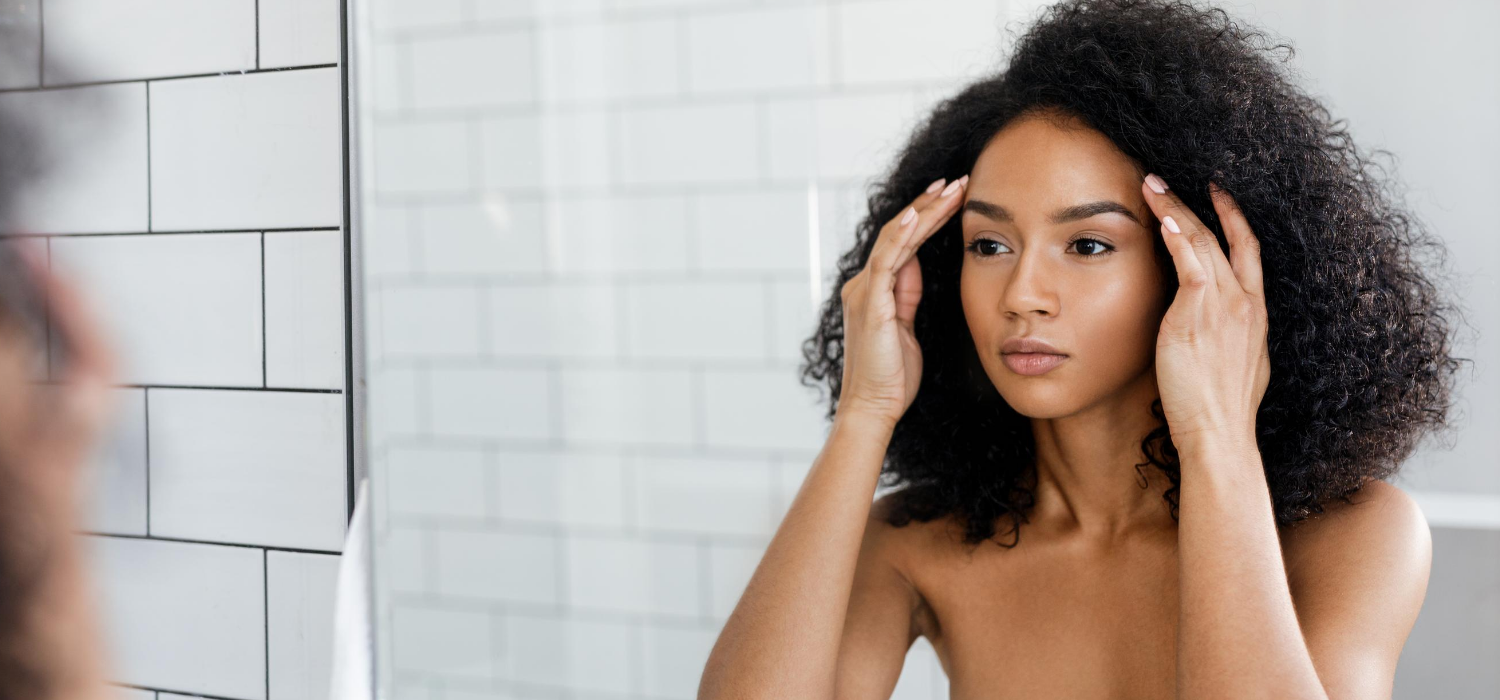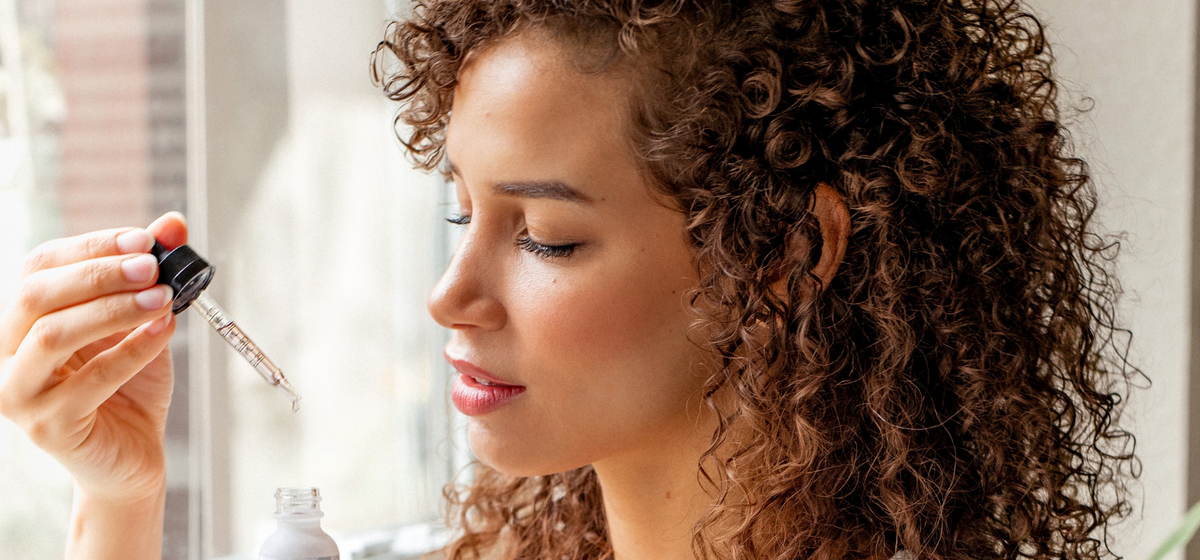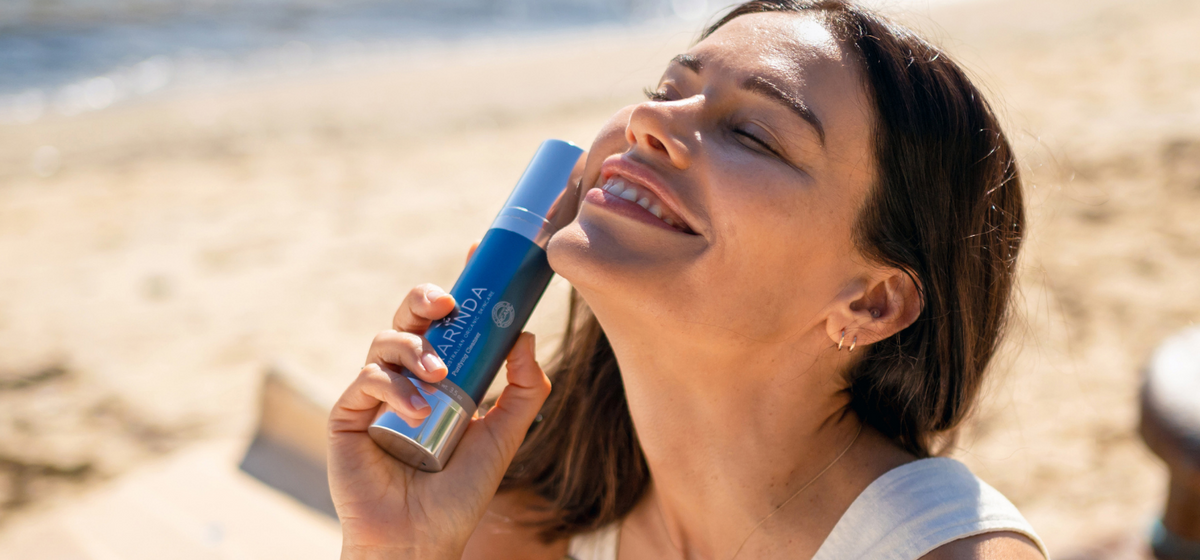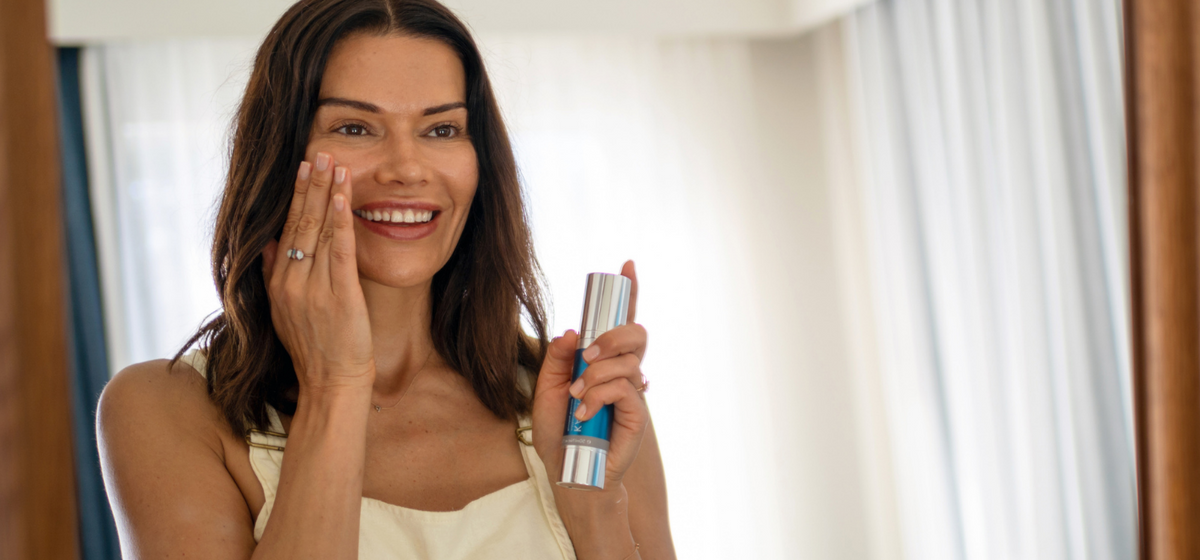Free Radical Damage Explained (And What To Do About It)

Free radicals. You know they spell bad news for your skin...but you’re not actually sure why?
Read on to learn what free radicals are, how they damage skin and why antioxidants are your skin’s best line of defence.
What is a free radical?
To understand what a free radical is and how it works we’ll need to dive into a quick chemistry lesson...so stick with us!
Your skin cells are made up of molecules and each molecule contains a pair of electrons.
It’s this pair of electrons that keep the molecule ‘stable’ and the skin cell healthy.
If a molecule of a healthy cell loses one of the electrons there’s no longer a pair. It becomes ‘unstable’ - the skin cell is damaged.
These unstable molecules are known as free radicals. The mission of a free radical is to find another electron, reform the pair and make itself ‘whole’ again.
To do this, it attacks a healthy cell to steal one of its electrons. In turn, this causes the healthy cell to become unstable, damaged, and on the hunt to steal an electron from another healthy cell.
And so continues the domino effect of free radical damage causing oxidative stress which accelerates skin ageing. This process is called the "free radical theory of ageing."
How free radical damage impacts the skin
The results of free radical damage can range from hyperpigmentation and broken blood vessels to sagging as a result of damage to elastin fibres in the skin.
Collagen is also broken down during free radical activity which leads to fine lines and ageing. Skin dullness and uneven skin tone can also be a result of free radical damage.
What causes free radical damage?
There are many factors that can trigger free radical damage that leads to oxidative stress in the skin.
Natural ageing process
To an extent, free radical damage is a natural part of ageing that affects our skin. As our bodies get older they become less and less effective at fighting free radicals. This leads to more cell damage, oxidative stress, and the signs of ageing.
Environmental
UV damage, pollution, and other factors in our external environment play a big role in free radical damage. Over exposure to the sun, living in urban areas with high pollution levels or frequent exposure to chemicals are all culprits.
Lifestyle choices
Lifestyle habits like eating a poor diet (especially one high in fried foods), smoking, and excessive alcohol consumption can all accelerate the amount of free radical damage in the skin.
Antioxidants: Your answer to free radical damage
A skincare routine (and diet!) packed with antioxidants is your skin’s best line of defence against free radical damage.
Antioxidants work by giving an electron to a free radical. This means it doesn’t have to scavenge the electron from a healthy skin cell. Essentially, this stops the chain reaction of free radical damage in its tracks.
Not only do antioxidants stall free radical damage, they can also help correct existing damage and target existing skin concerns like hyperpigmentation, dullness, fine lines, and wrinkles.
Below are some of the antioxidant powerhouses that fight free radicals and target specific concerns:
Vitamin C
Vitamin C promotes collagen production, which can thicken the dermis, smooth fine lines, and is essential for firm skin. Kakadu Plum and Finger Lime Caviar extracts are both excellent sources of Vitamin C.
Vitamin E
Recognised for its ability to accelerate the skin’s healing process, this vitamin is especially beneficial for dry and mature skin.
Retinol (Vitamin A)
Revered for its anti-ageing properties, retinol is a Vitamin A derivative that can increase skin cell turnover and stimulate collagen production.
Niacinamide (Vitamin B3)
Has the potential to strengthen the skin barrier, reduce hyperpigmentation, minimise fine lines and wrinkles, promote a more even skin tone, brighten, and improve skin elasticity.
Add an antioxidant-rich serum to your routine
Incorporating an antioxidant-rich serum into your daily routine is an effective way to combat free radical stress on the skin.
The texture of a serum is usually lightweight, being water-based, and is made up of very small molecules. These tiny molecules have the ability to penetrate the skin more easily and deeply than a regular moisturiser.
This gives serums a powerful advantage in delivering a potent hit of nutrients and antioxidants directly into the skin.
Our Rejuvenating Serum contains:
Kakadu Plum: The world’s richest source of natural vitamin C. Promotes collagen production and skin brightening.
Davidson Plum: Powerful antioxidant and anti-inflammatory properties. Promotes collagen production.
Fill your plate with antioxidants
Increasing the amount of antioxidant-rich food in your diet is just as important as the skincare you use.
Fill your plate with superfoods including blueberries, nuts, dark green vegetables, sweet potatoes, and fatty fish, especially sardines and salmon.
Swap a few of your lattes for green tea instead and reap even more antioxidant benefits. Green tea contains a powerful antioxidant called EGCG that is a potent anti-aging ingredient, helping to slow the visible signs of ageing.
Leave a comment
Comments will be approved before showing up.
Also in News

3 Big Skincare Mistakes You Don't Want To Make

Active Ingredient Percentages: What You Need to Know


